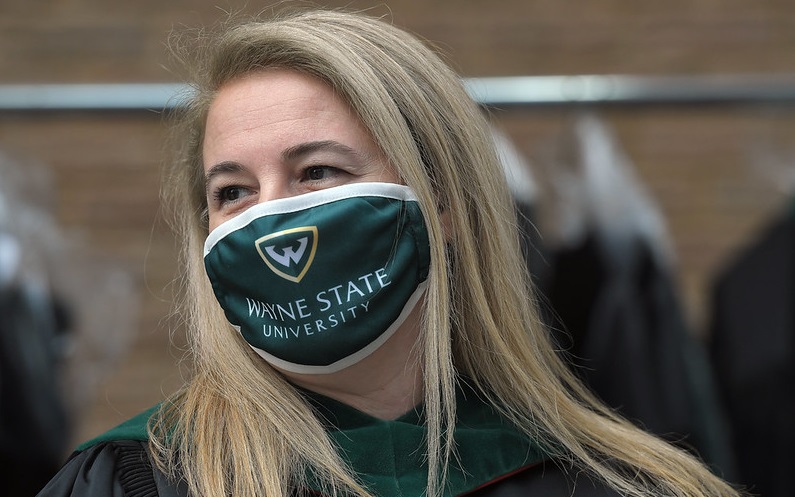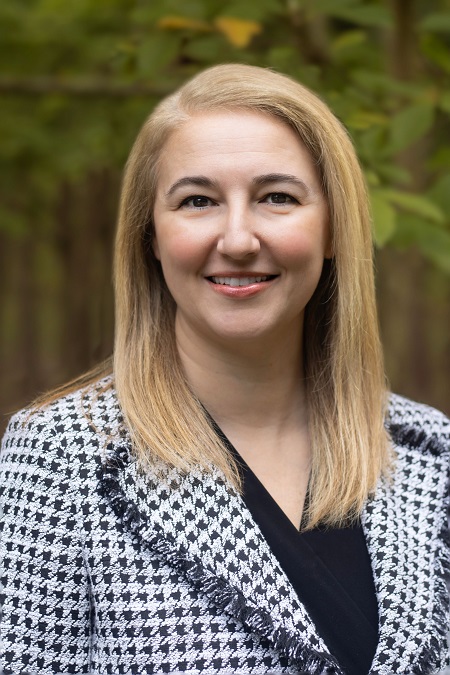
Each September, the American Medical Association’s Women Physicians Section honors physicians who have offered their time, wisdom and support to advance women with careers in medicine.
Growing up in the Rochester, New York area, Karen Mourtzikos, M.D., had two women she looked up to – her mother and her grandmother. Both were dermatologists, and both had experienced their share of gender inequities on the job, often being mistaken for nurses despite introducing themselves to patients as doctors.
Her parents moved to the United States so that their children could take advantage of the country’s educational system. Dr. Mourtzikos’s grandfather and great grandfather were also physicians. Her maternal grandparents met in medical school.

Yet it was the women in her family she turned to as she embarked on her own career as a female radiologist specializing in Nuclear Medicine.
“One of the things that’s important in all of this is I genuinely believe that barriers come down by interaction and exposure. It’s the patient who thinks I’m a nurse. That’s the interaction that I need to have in order to change their perspective,” she said. “I’ve been affected, unfortunately, by bias. The way that goes away is to have everybody at the diversity table. People were always going to think my grandma was a nurse, until she interacted as a physician.”
Dr. Mourtzikos was named executive vice dean and an associate professor of Radiology for the Wayne State University School of Medicine last November, moving to Detroit from her native New York. She is charged with overseeing strategic projects, graduate and continuing medical education, leadership searches and more. The “more” in her job description harkens back to what she learned from the women in her family.
“In some ways I think about that history because there’s a mantle of responsibility in moving forward. But that was always the framework for how I grew up. You put a positive ripple forward,” she said. “The inequities are going to come and they’re going to come to everybody. We all try to lift each other up, period. The point is to just try to be a positive force. And that’s something I learned from my family. But also, being a female physician in the 1940s, being a female physician in the 1960s and 1970s? It’s different now because of what everyone before us contributed.”
She received her bachelor’s degree cum laude from Union College in Schenectady, N.Y., in 1996, and her medical degree from Albany Medical College in 1999. She completed a Nuclear Medicine residency at the University of Maryland Medical System, where she was chief resident, and then completed a fellowship in Radiology and Radiological Science-Nuclear Medicine at Johns Hopkins University.
She previously served as an assistant professor of Clinical Radiology, vice chair of Faculty and Staffing Administration, and associate director of the Diagnostic Radiology Residency Program at the Stony Brook University Renaissance School of Medicine in New York.
Dr. Mourtzikos is board certified by the American Board of Nuclear Medicine, and is a member of the American Medical Association and the Society of Nuclear Medicine. With all her accolades, she recognizes the positive role models she had in her life, and the privileges she had being a daughter of physicians. Beyond the day-to-day requirements of her new role, Dr. Mourtzikos wants to enact change in the city of Detroit and beyond, from work at the School of Medicine to connecting with other units at Wayne State that work with students in Detroit and the surrounding areas.
“We have a very clearly-stated mission and it’s about service. And it’s something that looks to integrate with the community, support and uplift the community, and also learn from our neighbors,” she said. “It’s our ethos. It’s what we do.”
She hopes to introduce area high schoolers and middle schoolers to the possibility of careers in STEM – science, technology, engineering and math – in a way that affects their bottom line of supporting future families, inevitably bettering themselves and their community. “It has got be real. ‘I need a path to a sustainable career so I can feed my family,’” she said. “It needs to be practical. ‘This is the ultimate higher level you can vault yourself to, and we’re going to help you.’ Reality in that context is an everyday truth for the children of our community,” she said.